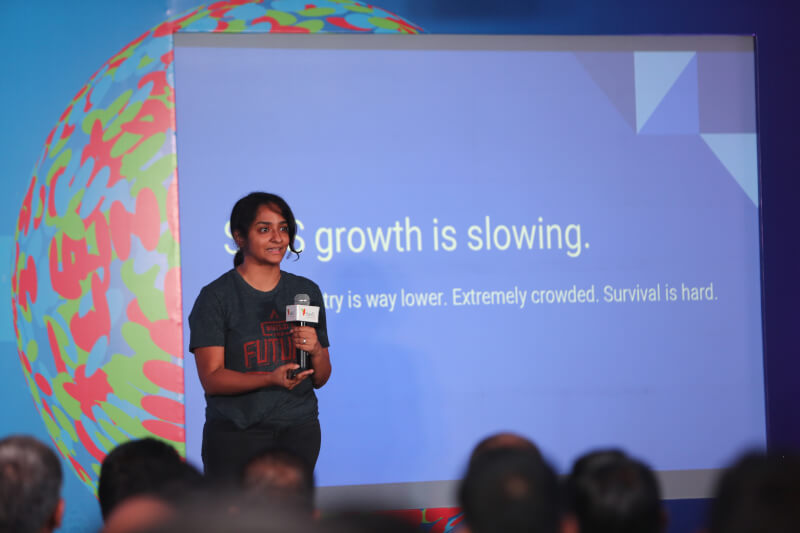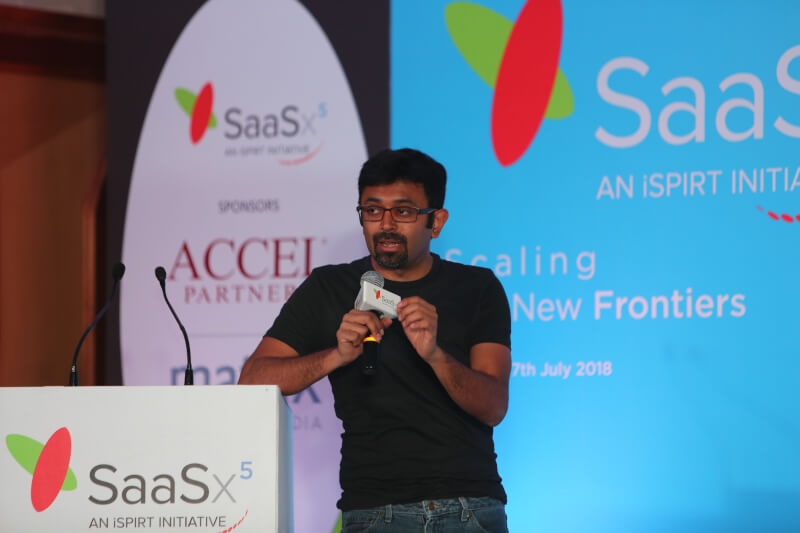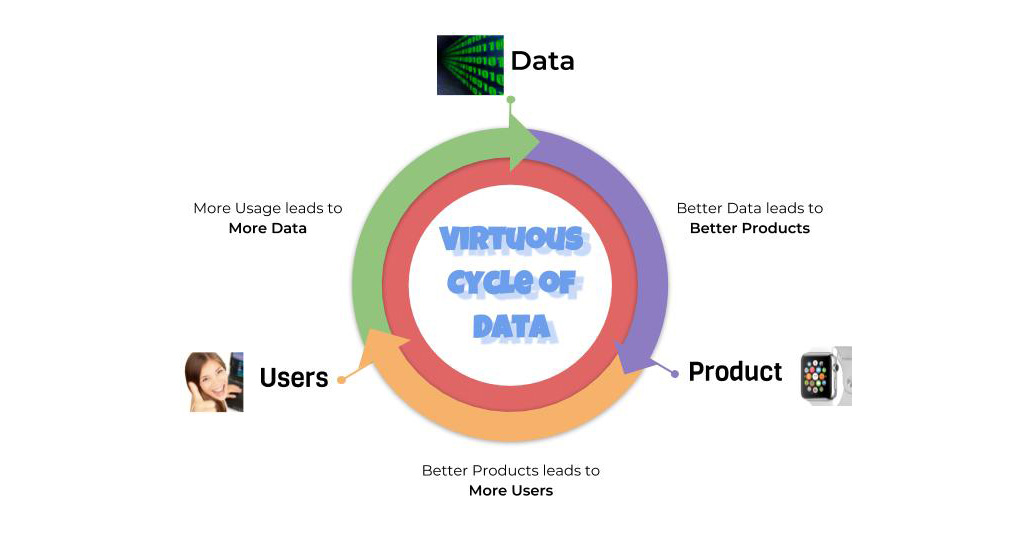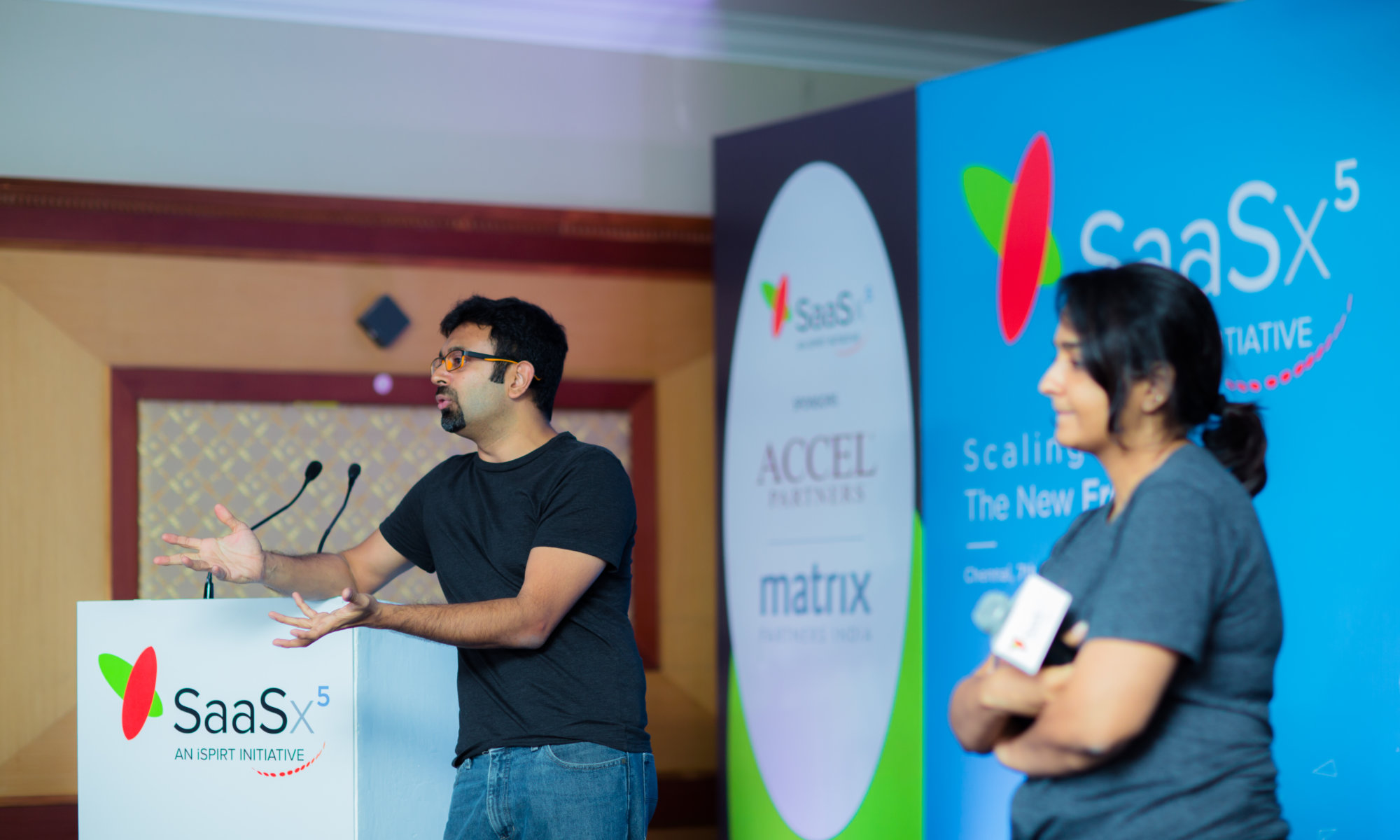Early stage SaaS startups typically struggle with one of two things. When you are just starting out, the first struggle is all about mere survival. Will we find customers willing to use and pay for our product ? Good teams typically manage to find ways to negotiate that first challenge. The playbook has been sufficiently commoditized that if you execute well enough, you can actually succeed in getting those early customers. Its a challenge for sure, but is getting easier and cheaper to overcome — which takes me to the second challenge. Once you survive that initial phase, how do you continue to stay relevant and grow? For if you don’t grow, you’ve only prolonged the inevitable and will likely get disrupted into irrelevance by the next upstart that comes along. When you play in a commodity market, that’s the sad reality.
If you find yourself gaining customer adoption, you can be fairly certain that competition isn’t far behind. Unless you find a way to establish sustainable differentiation while you have that head start, you will ultimately die. And that differentiation now increasingly comes down to the value of the data flowing through your platform and how you are able to leverage it better than your competition. In other words, if you are not thinking about constantly learning from the data that you are gathering and enabling implicit intelligence via your products, the odds of survival are going to be stacked against you. Given the significance this topic carries for us at Swym, I was really excited to have the chance to sit in on Ashwini Asokan and Anand Chandrasekaran’s session on AI/ML for SaaS at SaaSx5. And they most certainly didn’t disappoint. With a lucidly laid out argument, their talk served as a strong wake-up call for the SaaS founders in the room that weren’t sufficiently worrying about this topic.

SaaS growth is slowing
Ashwini started out by underscoring the fact that SaaS growth was slowing in general. There’s no denying that most solutions are rapidly becoming commoditized — building a good product has gotten fairly prescriptive, costs have come down and barriers to customer adoption are a lot lower than they used to be. That inevitably leads to markets getting very crowded, making survival increasingly difficult. If you don’t stand out in very defensible ways, you will perish. To make matters worse, AI is slowly but surely causing entire categories of work to disappear — Customer Support, SDRs, Financial/Market Analysts, to name just a few examples. If those workers were your market and you were helping them be more efficient, you are in trouble because your market is disappearing with them. You better be evolving from being software that’s serving those people that in turn serve a function, to actually serving the function itself. Of course you do this with human assistance, but in a progressively intelligent fashion that makes you indispensable.
Embrace the platform mindset
In order to stay relevant, you really need to create a viable roadmap for yourself to graduate from being a simple feature that’s part of a larger platform (No one likes being told they are nothing but a feature, but this really is where most early stage SaaS products sit today) to becoming the platform itself over time. It can most certainly be done because the opportunity exists, and the access you have to your data and how you are able to leverage it is likely to be the most effective weapon to get you there. Think really hard about new use cases you can light up, automations you can now enable, important solutions that hitherto weren’t possible or practical — enabling those capabilities is what will give you stickiness. And you can in turn leverage that stickiness to allow others to build on the data platform you’ve created to expand your moat. Easier said than done of course, but it is the only path to staying relevant. Alexa, Salesforce, Adobe, Hubspot, and most recently Stripe with their just announced app store, all come to mind as stellar examples of execution on this strategy.

How should I be thinking about Data Science?
Anand followed that up with some really good advice on how to go about this, especially touching on what not to do, and it was clearly resonating with the audience. For instance, when he highlighted the fact that most AI initiatives that start with “Here’s the data I have…what can I do with it?” are doomed from the get go, a lot of heads in the room were nodding in agreement — seemed like a pretty common trap that folks had fallen into. Instead, his advice was to identify the end goal that mattered first, with the caution that this could be deceptively challenging. Once that goal is well understood, then focus on the data you have and the gaps that exist — and your challenge basically boils down to filling those gaps and cleansing/validating your data. Those are your most critical, time-consuming steps in the process for once you get the data quality you want, it becomes much simpler to build and iterate your model around that and figure out how to engineer this into a repeatable part of your workflow. The sub par data quality is one of the most common causes for AI projects “failing” and no amount of modeling proficiency will save you from bad data or a poorly understood problem statement.
Get on the train, but don’t lose sight of what got you here
I’m really glad to have had the benefit of listening to their talk in person, and now that I’ve let the arguments sink in over the past couple of weeks, a few truths have become indisputably clear in my head. The AI shift is not one you can ignore as a SaaS founder. If you don’t get on the train, you’ll likely end up under it. And no, getting on the train doesn’t mean simply attaching a “.ai” to your domain name and claiming success. It really comes down to internalizing your vision for why you exist, identifying in very clear terms how your roadmap to making that vision a reality will need to evolve given the AI shift. How do you see your problem space changing in the the next 2–5 years thanks to AI, and what does that mean for you? And given your existing strengths, what can you do to make the most of that shift?
Its important to remember that a lot of the fundamentals of a good SaaS story still don’t change. For instance, a sound distribution strategy is still very much necessary, for without sustainable access to customers, the rest of it is moot. Likewise, you want to be able to protect the access you have to your most valuable asset, your data) and lower the barriers enough for adjacent players to be able to work seamlessly with your offering. All those advantages you have still very much matter. Really, the biggest mental shift you need to make is thinking very deliberately about how the world around you is changing because of AI, and how you leverage those strengths so you continue to have proprietary access to the data you need and become an integral part of that change.
The article is authored by our volunteer Arvind Krishnan, CEO & Founder – Swym Technologies.








 Our Maven:
Our Maven: 

